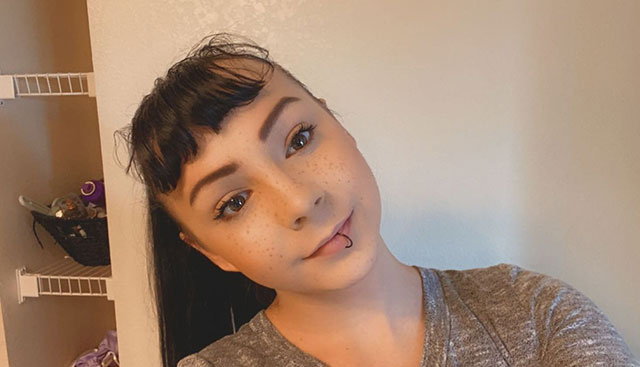
Artemis' Story: There is a Light at the End of the Tunnel
By Olivia Luginski, LCSW
Outpatient Sarcoma Social Worker
At the young age of 19 years old, Artemis walked into the sarcoma clinic for a consultation to discuss a secondary diagnosis of radiation-induced pelvic sarcoma. After the discussion of a treatment plan including months of chemo and surgery, she focused on the road ahead. To start from the beginning, Artemis was diagnosed at 4-years-old with rhabdomyosarcoma in Charlotte, North Carolina, where she completed radiation and chemotherapy. After months of inpatient hospital stays and scans, she hoped to live cancer-free.
When Artemis presented with a secondary cancer 15 years later, she actively took hormone therapy as she identified as a transgender female. She was compelled to cease hormone therapy to begin active chemo treatment and plan for surgery. She shared she understood why her hormone therapy had to stop but always remained motivated to return to it to support her gender identity.
When asked if her gender identity created any hurdles within the health care system, she said, "It naturally causes confusion when they read a male name but see a female person." She shared she was always comfortable correcting an individual if they used inaccurate pronouns and was open to educating others about her identity.

"I felt welcomed at Moffitt, loved, cared for and supported," said Artemis. She describes feeling like a unique individual with unique needs.
Artemis revealed the secret to getting through tough chemotherapy days and surgery recovery. It included thinking long-term, remaining optimistic, and never letting her anxieties overcome her. Alongside her hopeful attitude, she enjoyed reading, listening to true-crime podcasts, sleeping, binging Netflix and "eating all the chicken nuggets."
"Do not give up because you will get through it," said Artemis. "There is a light at the end of the tunnel and only you have the ability to make yourself happy."
She encourages other LGBTQ+ patients to find the light by actively seeking mental health support and connecting with loved ones.
We can all learn a lesson from Artemis’s resiliency, honesty and an optimistic attitude. She remains a strong advocate for herself by verbalizing her needs and valuing the support in her life. Artemis is now one year and eight months out from treatment with no evidence of disease. She remains motivated and hopeful to someday complete sexual reassignment surgery and begin hormone therapy again.
